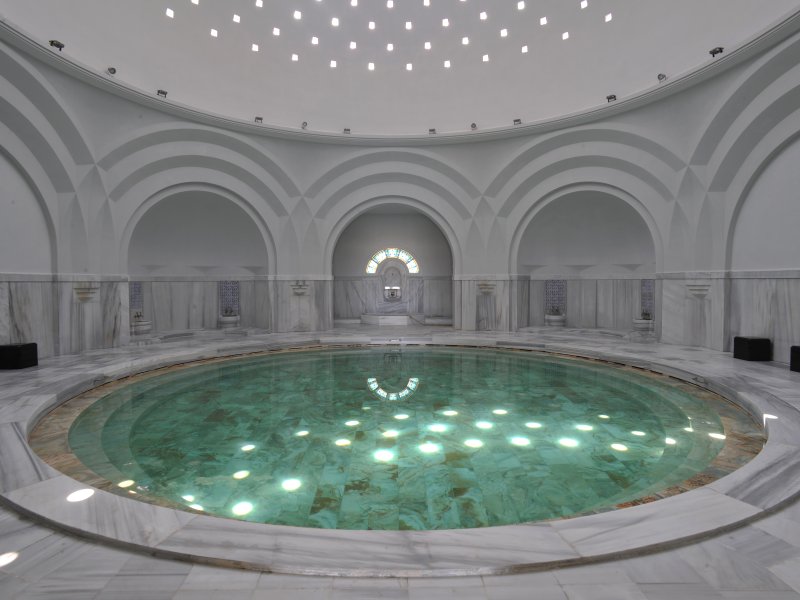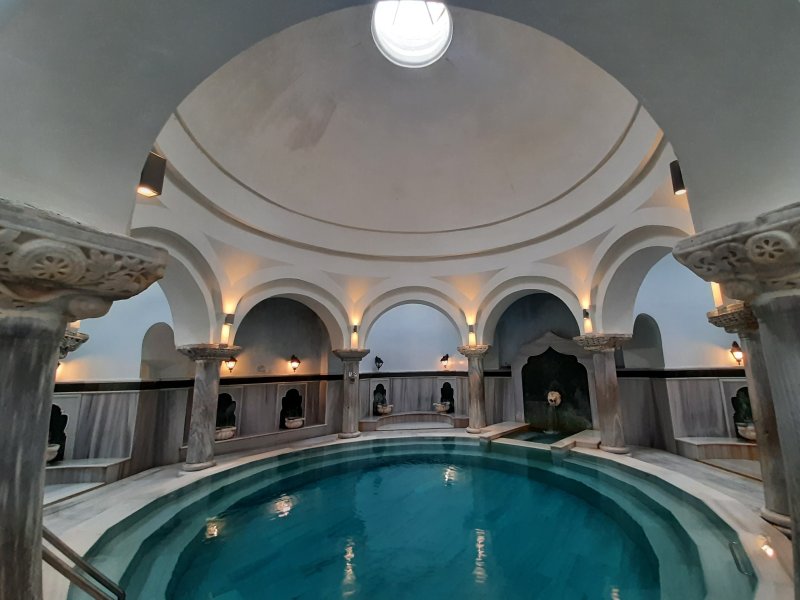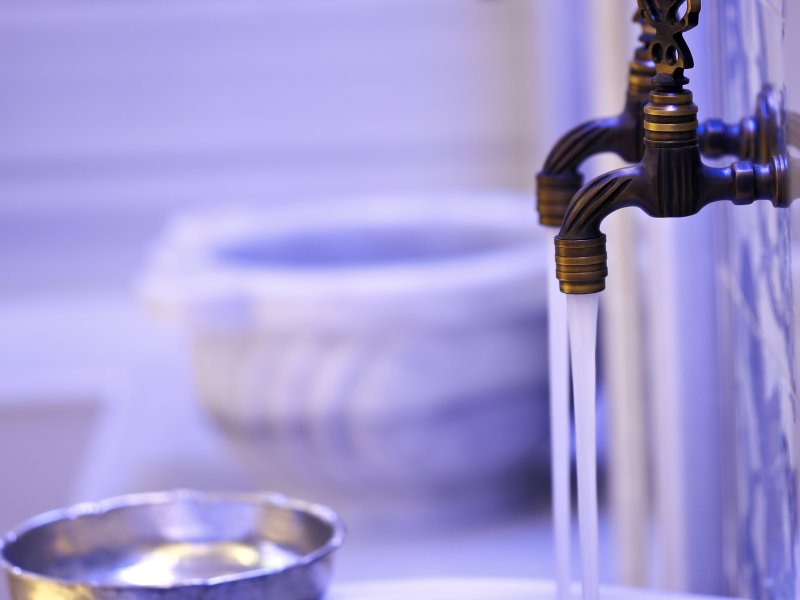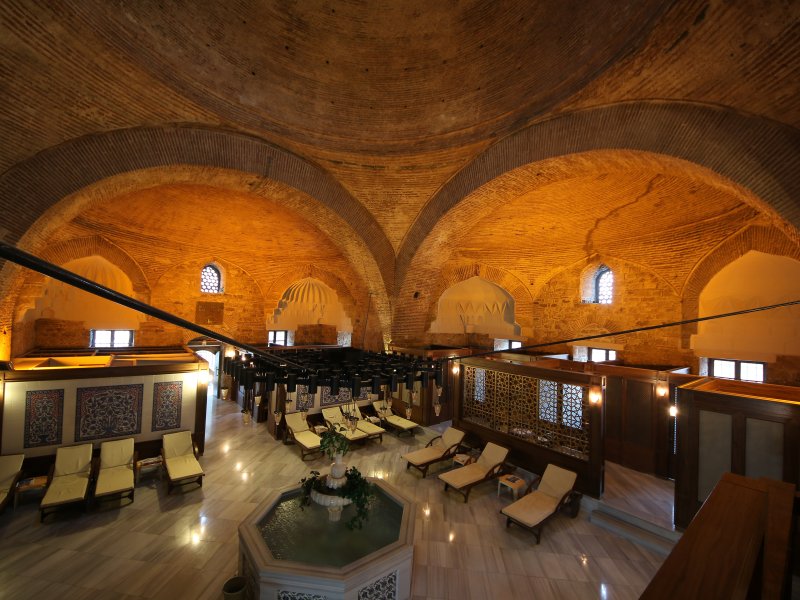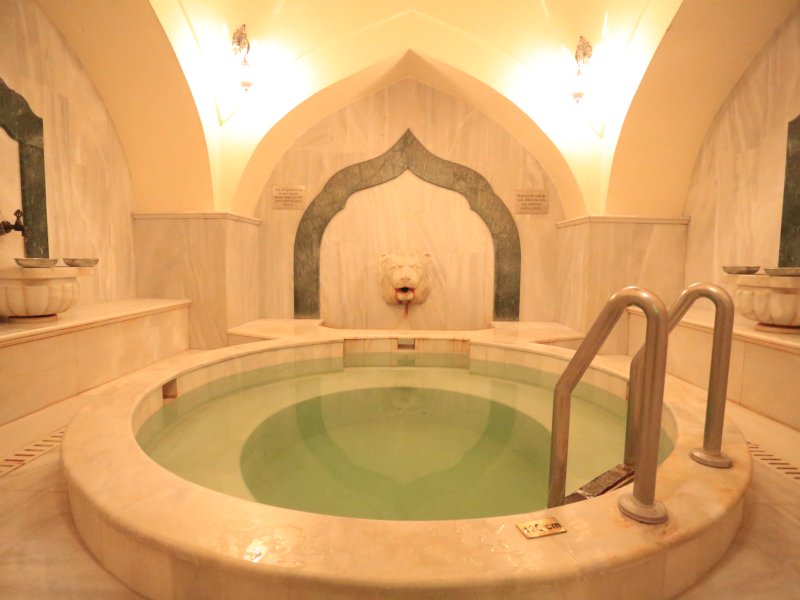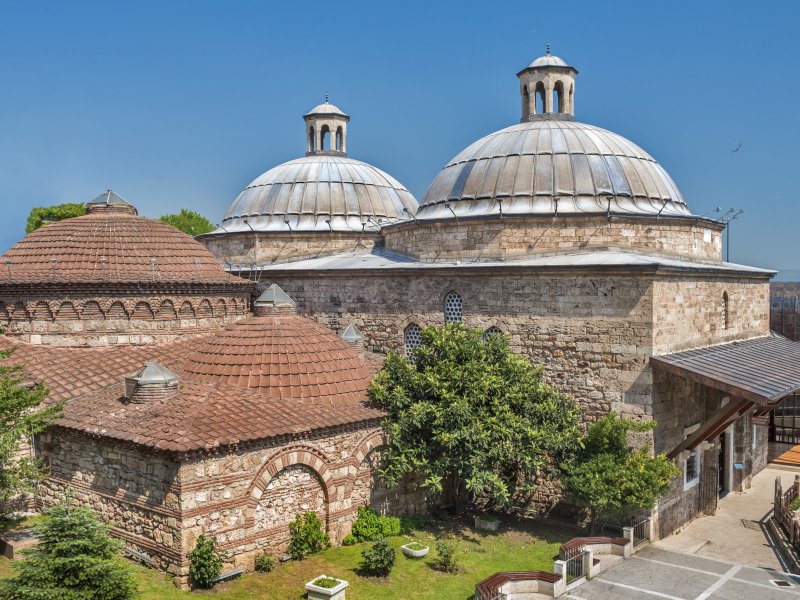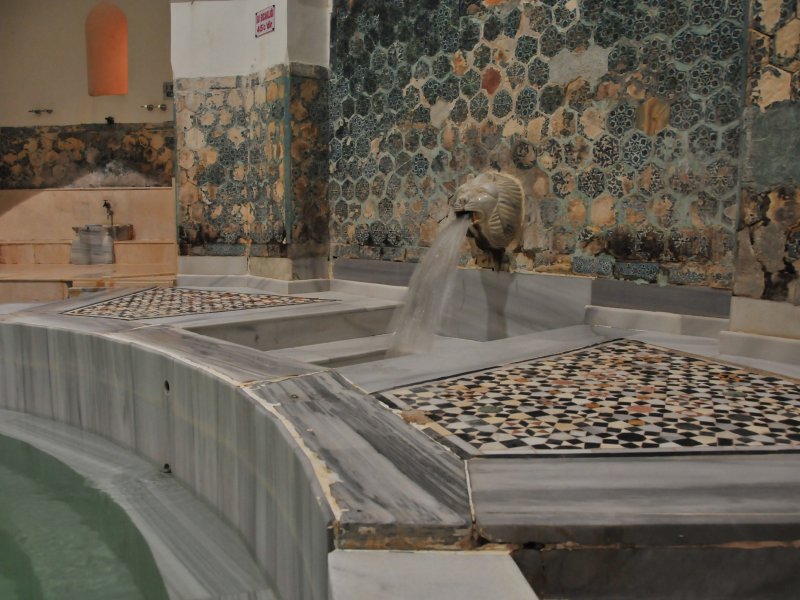Evliya Çelebi, a famous Ottoman traveller, while describing Bursa in his Travel Book, said, "In short, Bursa is a city of water". Established on the skirts of Uludağ, that Bursa's being rich in terms of both cold and hot water resources, has enabled the construction of baths that will enable the use of these waters in every period of history. Apart from the baths in the districts of Bursa, it is known that there are a total of 55 baths in Bursa, 41 of which take place in the city center and 14 mentioned in the written sources.
Apart from their architectural structure and functionality, baths have continued their existence as social living spaces as a part of traditional life from past to present. This custom still continues through social activities such as The traditions of Bridal Bathing, Circumcision entertainments, Lohusa Hamamı (Bathing, bathing of the confined mother after giving birth), Adak Hamamı (bathing in a public bath after taking vow to promise to do a good deed or sacrifice an animal when one's desire or prays come true) and in weddings and on other important days and holidays, which are considered as the turning points of one's life. Peshtemals (waste cloth), bath bowls, soap, bath gloves, towels, clogs or slippers, which are the items used in the bath, has taken their place in the bath culture as the ethnographic materials used in the bath, although they have changed shape from the past to the present. From the point of view of folk literature, the stories told about the baths, the legends, the source of the healing hot water
used in the baths, the healing properties of the water are the traditional cultural elements that complete the bath culture.




